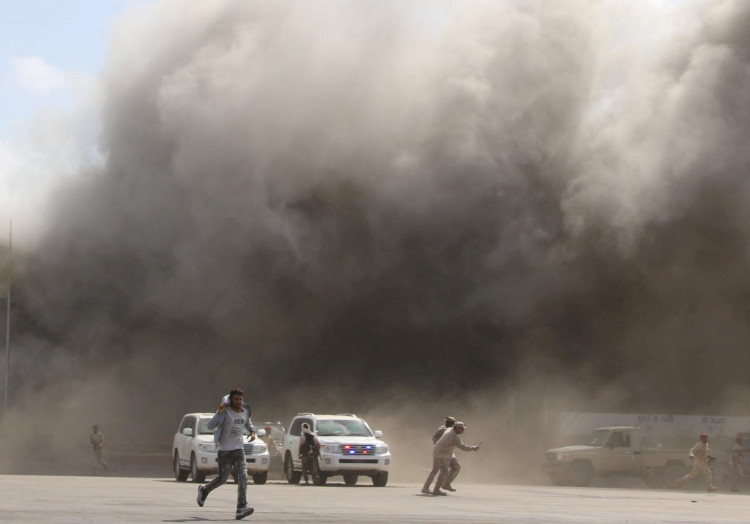In a dramatic escalation of the ongoing conflict in Yemen, the United States, in coordination with the United Kingdom, launched a series of airstrikes against Houthi rebel forces. This move, a direct response to the Houthis' aggressive actions in the strategic Red Sea corridor, has intensified fears of a broader regional conflict in the already volatile Middle East.
President Joe Biden, articulating the rationale behind these strikes, stated, "These attacks have endangered U.S. personnel, civilian mariners, and our partners, jeopardized trade, and threatened freedom of navigation." This firm stance by the U.S. reflects a commitment to safeguard vital international shipping lanes and uphold global trade security.
The Houthis, an Iran-backed Shia political group, responded with strong rhetoric. Houthi military spokesman Brig. Gen. Yahya Saree declared, "The American and British enemy bears full responsibility for its criminal aggression against our Yemeni people." He emphasized that the response to these strikes would be significant and consequential.
Amidst this, U.S. Secretary of Defense Lloyd Austin, recovering from surgery, issued a warning from his hospital bed: "Today's coalition action sends a clear message to the Houthis that they will bear the costs if they do not end their illegal attacks."
The operation has not been without controversy within the U.S. itself. Several Democratic lawmakers criticized President Biden for not seeking Congressional approval for the airstrikes. Rep. Ro Khanna (D-CA) argued, "The President needs to come to Congress before launching a strike against the Houthis in Yemen... That is Article I of the Constitution." This sentiment was echoed by others, including Rep. Pramila Jayapal (D-WA), who called the bombing campaign "an unacceptable violation of the Constitution."
This internal political debate underscores the complex nature of military engagements and the importance of adhering to constitutional protocols. The Biden administration's decision to bypass Congress has sparked a broader conversation about the executive branch's authority in military matters.
On the international front, the Houthi attacks on Red Sea shipping, which prompted the U.S. and UK response, have led some of the world's largest shipping companies to avoid the waterway. This decision affects approximately 12% of global trade, highlighting the strategic importance of the Red Sea as a commercial shipping route.
As tensions continue to rise in the region, the potential for an expanded conflict looms large. The situation in Yemen remains precarious, with the Houthis' continued aggression and the U.S. and UK's firm military response setting the stage for further developments in this ongoing saga.






